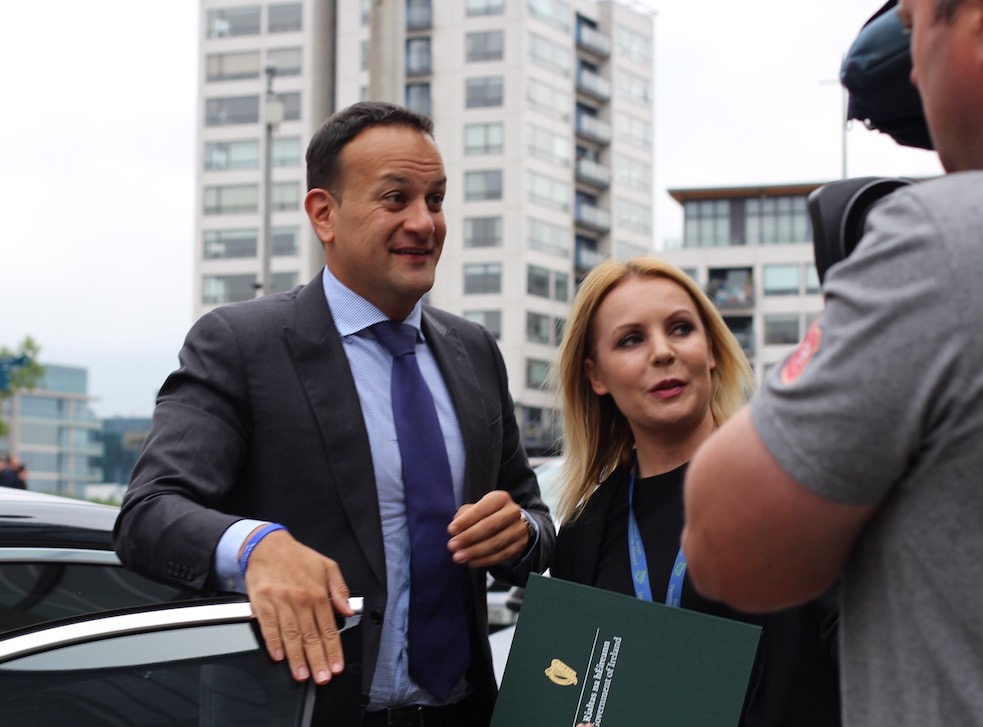Taoiseach Leo Varadkar has indicated that his government has ruled out further increases to third-level fees or the introduction of a student loan scheme, in a seismic intervention in the higher education funding debate.
Speaking to the Irish Examiner, Varadkar outlined his opposition to increasing student fees or the introduction of a student loan system and said that “in terms of student contributions, I am very reluctant to see student contributions being raised”.
“I am very reluctant to go down the model of a student loan system because I see in other countries how that leaves students graduating from college with very large debts”, he said.
The Taoiseach went on to express concern about the Irish higher education funding system resembling the US or UK systems, saying: “I just don’t want students graduating with massive debts like they do in England and the US.”
“It’s hard enough to pay rent or save for a deposit without a big student loan to pay off also”, he said. “I also see what happens in the US where people graduate with debts of 100k plus. It is inevitably passed on to the consumer in the form or higher costs for services — cost of seeing the doctor, cost of legal services, et cetera.”
This rules out two of the three options proposed in the Cassells report, a landmark report on the future of higher education funding that was published in 2016. The report suggested three possible routes for the government in tackling the crisis: the abolition of the student contribution fee and the state entirely funding the higher education system, the continuation of the student contribution fee alongside increased state investment and the introduction of income-contingent student loan scheme.
In a press statement, the President of the Union of Students in Ireland (USI), Síona Cahill, said: “The Taoiseach has finally spoken on the issue of student fees to access higher education after what has been a deafening silence. What we demand now is action, doing nothing is not an option. We need a publicly funded education system that is accessible, high quality and fit for purpose. I have requested a meeting with the Minister of State for Higher Education as a matter of urgency to discuss this further.”
“If urgent action is not taken, there’s a real risk that today’s 7 and 8-year old primary school students will not have sufficient college places available to them in 2030 when the demographic bulge peaks with an additional 40,000 students seeking to access third level, nor will the education system be of the standard they deserve and one which the economic future of our country undoubtedly relies on”, she said.
After years of discussion about the report on the Oireachtas Education Committee, these comments indicate that the Government may opt for an approach more focused on increased state funding of higher education. The Cassells report found that the predominantly state-funded system would see the state contribution at about 80 per cent, compared to 55 to 60 per cent in a loan scheme system.
The Cassells report found that an extra €900 million a year by 2023 was needed to invest in higher education to maintain quality.
Opposition leaders, speaking to the Irish Examiner, called the move “highly significant”.
Labour leader Brendan Howlin said that the government had tried to “bury” the issue of higher education funding since taking office but called this an important development.
Speaking to the Irish Examiner, the head of the Irish Universities Association (IUA), Jim Miley, said that “the comments by An Taoiseach on third-level funding give clarity on what the government does not want. If this is now official government policy, it is clear that the only other source of the much-needed funding is the state itself”.
Miley urged the government to “act decisively and provide increased funding”.
In September of last year the IUA u-turned on its policy on student-loan scheme. In an interview with The University Times, Miley said that the heads of universities “think that the loans argument was a cop-out. It really was something that allowed the government to get off the hook for the last couple of years”. He added that “loans were never going to solve the problem. The loans option under Cassells was a partial aspect of one option”.
In October, the IUA launched the Save Our Spark campaign, which aimed to raise awareness of the funding crisis and the government’s lack of action on the issue. In a press statement launching the initiative, Miley said: “For the first time ever, all seven Irish universities are coming together to demand urgent action on the funding crisis, as we need substantial investment to accommodate the extra students that are expected to enter the system over the next decade.”







